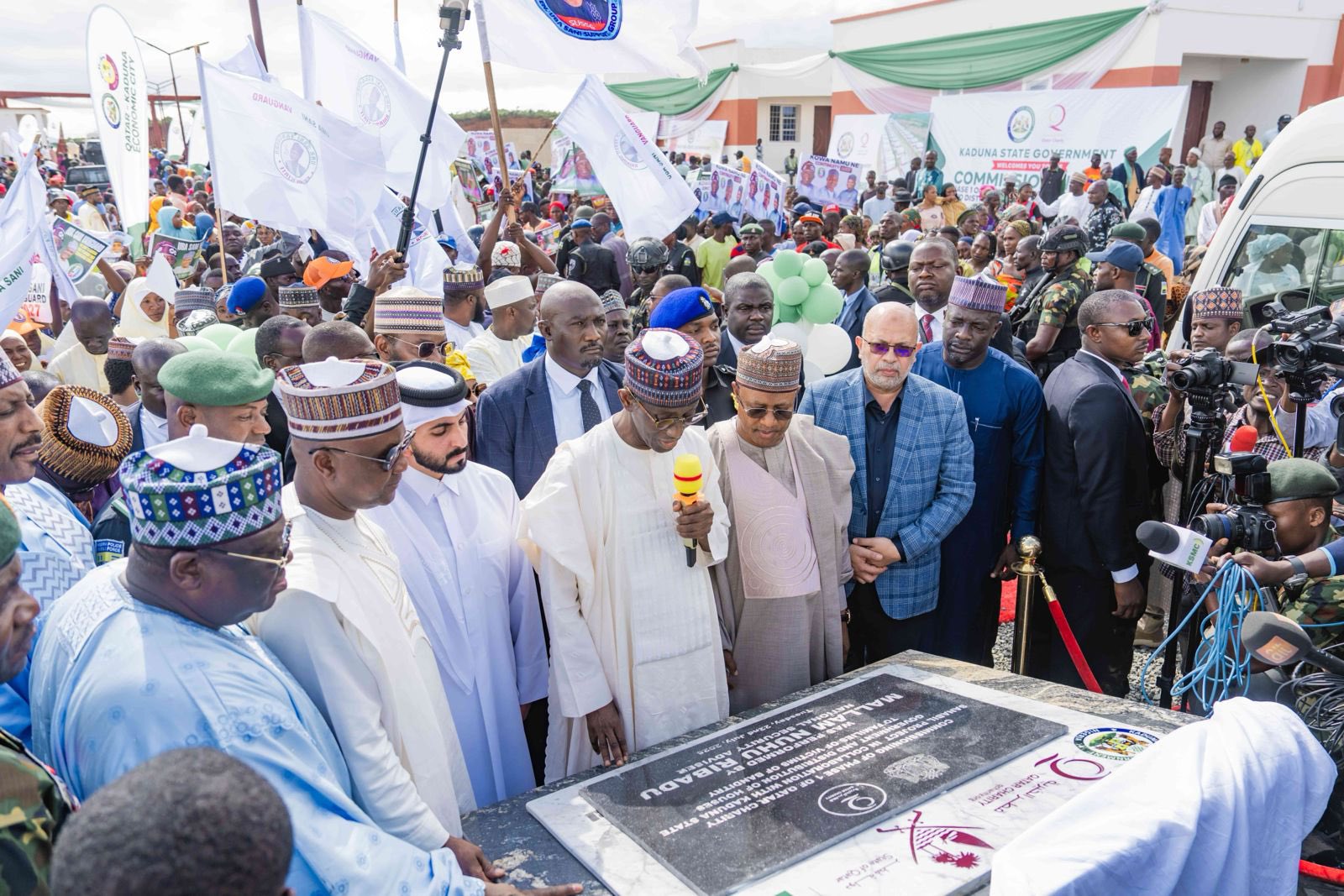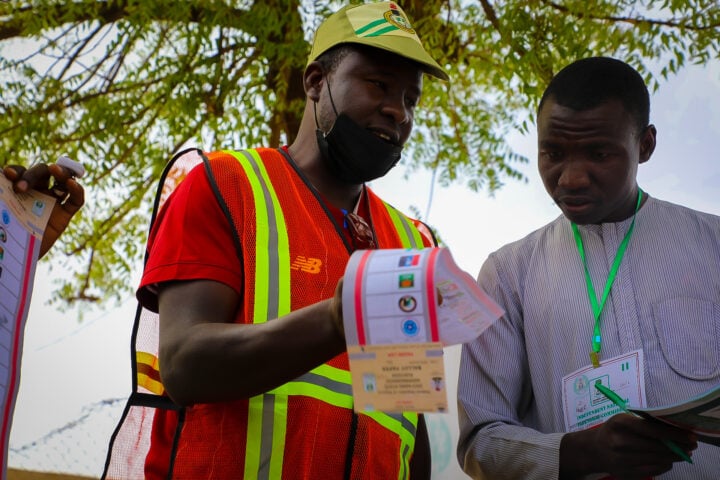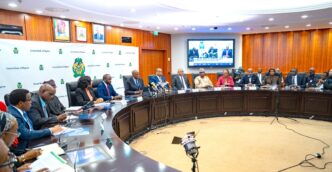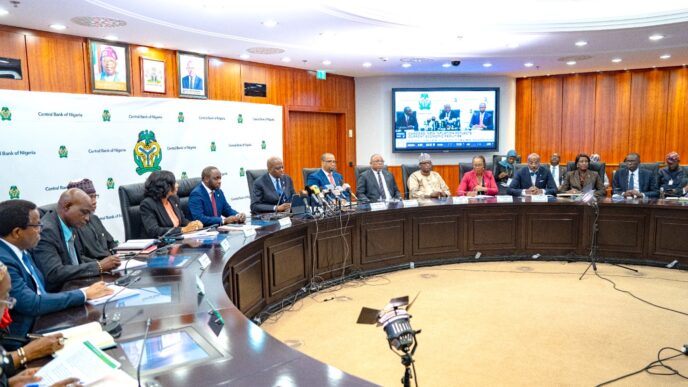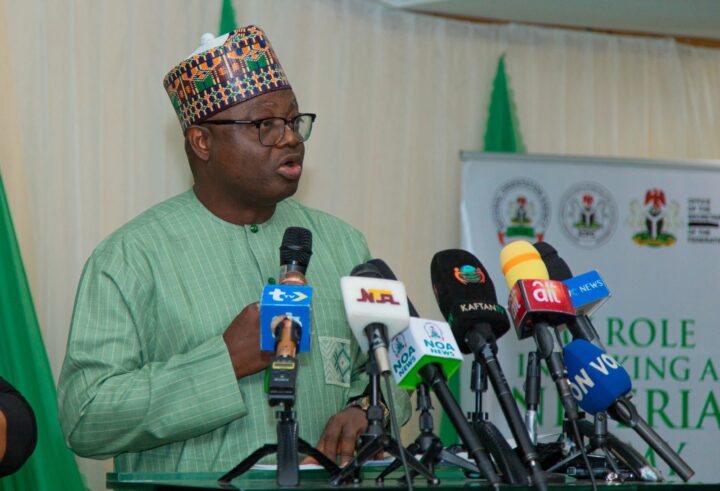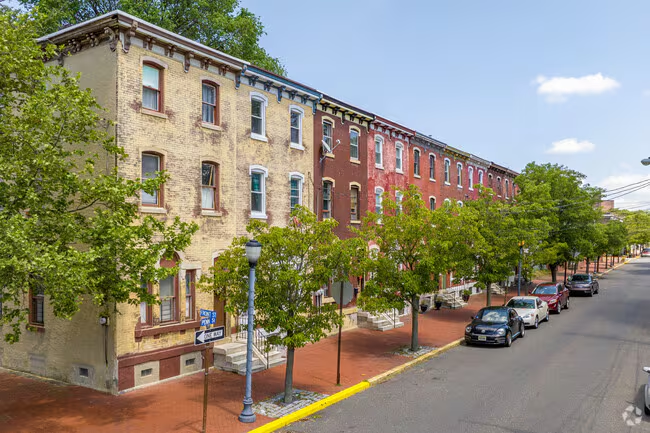BY AHMED IBRAHIM YUSUF
When history pens the renaissance of Kaduna State, it will not overlook the significance of July 21, 2025 — a date now etched in gold across the annals of restitution, leadership, and recovery.
It was on this day that Governor Uba Sani, with solemn resolve and visible compassion, led the commissioning of Phase One of the Qatar Sanabil Project, distributing dignified homes to families who had endured the searing wrath of banditry. This event was not simply ceremonial.
It was redemptive. It was, in its truest form, an act of healing — a moment when the distance between governance and humanity collapsed, and the powerful hand of leadership became a tender balm for wounded souls.
Advertisement
Governor Uba Sani did not just unveil infrastructure; he unveiled justice with concrete, handed over compassion in the form of keys, and offered the gift of belonging to those whose lives had been defined by loss. Where once there was silence, sorrow, and displacement, now stand homes, symbols of resilience and monuments to the State’s refusal to forget its people. Under his administration, peace is no longer an elusive prayer whispered through tears; it is a living reality crafted through vision, strategy, and sacrifice.

For more than a decade, Kaduna bore the brunt of violence that threatened to eviscerate its soul. Banditry, kidnappings, arson, and wanton killings stripped entire communities of their identity. Farms lay fallow. Markets were shuttered. Schools fell silent, and dreams lay scattered among ashes. The Kaduna–Abuja expressway, once a vital artery of commerce and connectivity, became synonymous with dread and death. Investors took flight, families scattered, and governance itself trembled under the weight of chaos.
Advertisement
It was into this crucible of despair that Senator Uba Sani stepped on May 29, 2023. The task before him was Herculean. But he approached it not with fear or fanfare, but with the quiet, firm resolve of a man intimately acquainted with the pains and promise of his people. He understood that to restore Kaduna, he would need to be more than Governor. He would need to be a listener, a builder, a reconciler, and above all, a servant of justice.
Governor Sani adopted a dual philosophy: a kinetic response to dismantle the architecture of violence, and a non-kinetic, people-centered model to rebuild the social fabric. His blueprint, shaped by consultations with traditional rulers, community leaders, security operatives, and victims, culminated in what is now known as the Kaduna Peace Model — an inclusive framework that understands that peace is not imposed from above, but nurtured from within.
He took his security masterplan directly to the top: the National Security Adviser, the Chiefs of Defence, and the Service Chiefs. He argued not just with facts, but with heart — for more Forward Operating Bases, better troop coordination, and a grassroots-informed approach. And they listened. Under his stewardship, the Kaduna–Abuja highway was reopened. The infamous rail corridor resumed operations. Farmers returned to their land. Markets, long closed, came back to life. And fear began to loosen its decades-old grip.
But Governor Uba Sani knew that physical security was only half the battle. Restoration required not just the absence of violence, but the presence of dignity. Thus emerged his signature collaboration with Qatar Charity, resulting in the Qatar Sanabil Project. With two transformational arms — mass housing for the underserved and the creation of an economic city — the initiative is set to directly impact more than half a million vulnerable citizens. The symbolism could not be clearer: where bandits once sowed destruction, a new city of hope is being born.
Advertisement
The partnership between Qatar Charity Foundation and the Kaduna State Government under Governor Uba Sani on the Qatar Sanabil Project reflects a shared vision for sustainable development, rooted in transparency, accountability, and impact. Governor Uba Sani’s leadership has been marked by integrity, inclusiveness, and a firm commitment to improving the lives of the most vulnerable. His administration’s focus on infrastructure, social investment, and economic empowerment has earned wide recognition, making Kaduna a reliable destination for international development partnerships.
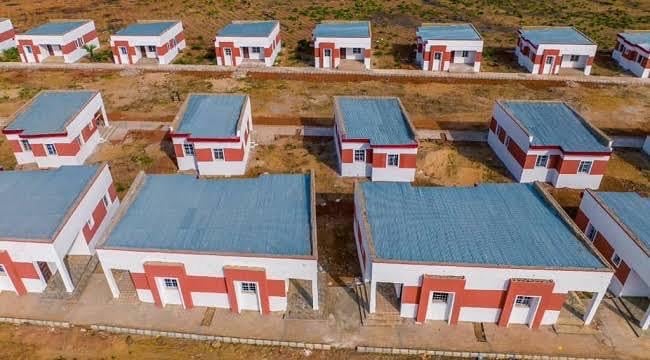
Qatar Charity, known for its global humanitarian footprint and dedication to transformative community projects, finds in Kaduna a partner equally committed to responsible governance and measurable outcomes. The Qatar Sanabil initiative, which aims to deliver 500,000 housing units and develop a model economic city, is a bold step towards alleviating poverty and restoring dignity through integrated housing, healthcare, education, and livelihoods.
This collaboration is underpinned by mutual trust and a shared commitment to excellence. The Kaduna State Government offers a stable, transparent, and enabling environment — hallmarks of Governor Sani’s administration — while Qatar Charity brings expertise, resources, and a proven track record in large-scale humanitarian interventions. Together, they are setting a new benchmark for development partnerships in Africa.
Advertisement
In essence, the Qatar Sanabil Project is more than a housing scheme — it is a symbol of visionary leadership and global solidarity. It embodies what can be achieved when integrity meets innovation, and when a government’s commitment to its people aligns with an international organisation’s mission to serve humanity.
The commissioning of Phase One of the project was particularly poignant. The beneficiaries were families who had lost husbands, fathers, mothers, and children to the cruel arithmetic of banditry. But they were no longer just statistics. That day, they were seen, honoured, and uplifted. Governor Sani’s words rang with gravity: “Shelter is not merely physical. It is emotional, psychological, and spiritual. It is the bedrock of human dignity.”
Advertisement
This vision extends beyond housing. Alongside the homes, his administration distributed empowerment tools — cargo bikes, tricycles, grinding machines, salon kits, and welding equipment — so that widows, youth, and the unemployed could stand with renewed self-worth. A school, a health clinic, and a skills acquisition center were inaugurated — all pillars of a future that refuses to be haunted by its past.
This wasn’t a showcase; it was a statement. A declaration that under Uba Sani, Kaduna would never again be a theatre of forgotten tragedies. It would be a place of restored faith, reclaimed purpose, and relentless progress.
Advertisement
President Bola Ahmed Tinubu, GCFR, represented by the National Security Adviser, Mallam Nuhu Ribadu, echoed this sentiment. “Under your stewardship,” he said to the Governor, “Kaduna is transforming from an epicenter of violent attacks to a model of stability and peace. You are wiping the tears of victims, reconciling communities, and giving everyone a sense of belonging.” These were not platitudes. They were earned affirmations: testimonies to a leadership that has not only confronted pain, but transformed it.
The success of Kaduna’s peace strategy lies in its nuance. It recognises that justice must be served, but also that healing must be offered. Through a carefully crafted Disarmament, Demobilisation, Rehabilitation and Reintegration (DDRR) programme, bandits who laid down their arms were given a chance to choose peace. In the difficult terrain of Giwa, Chikun, Kajuru, Birnin Gwari and Kagarko, some of the most notorious insurgents surrendered and embraced reintegration. Their surrender was not a capitulation to government power, but a recognition that peace, when honestly brokered, is more powerful than violence.
Advertisement
This initiative was never about appeasement, nor about turning a blind eye to past crimes. It was, in its finest form, about giving peace a face, a home, and a future. Dr. James Kanyip, Kaduna’s Commissioner for Internal Security, rightly defended this strategy: “The peace process itself is within the confines of the rule of law. The entire constitution is about guaranteeing peace and welfare. If that peace is attained through a constitutionally sound peace process, why not?”
Governor Uba Sani understood that peace must be durable. To that end, he signed the Kaduna State Security Trust Fund Bill, repealing the older 2018 version, and allowing private sector involvement in financing security. This wasn’t just legal housekeeping; it was a strategic stroke to anchor progress in sustainable funding and multi-sectoral collaboration.
Beyond very close collaborations with the nation’s Armed Forces, the Police and other security agencies, Governor Uba Sani revitalised the Kaduna Vigilante Service, recruiting and training thousands of new personnel and arming them with equipment and purpose. And perhaps most importantly, he restored confidence among citizens, allowing security to become a shared civic responsibility. His regular security briefings with community leaders helped decentralise the security conversation, making every citizen a stakeholder in peace.
Governor Sani’s leadership is not merely institutional; it is deeply human. His voice trembled with emotion as he addressed victims and survivors, not as a politician speaking to constituents, but as a brother speaking to his own. “You are not forgotten. You are our heroes,” he told them. “We do not merely give you homes; we return dreams to the dreamers.”
Such sentiments are not common in politics. But neither is Governor Uba Sani. He has chosen a path not of convenience, but of conscience — one that trades applause for action, popularity for purpose, and power for service.
His approach to governance carries the weight of empathy and the urgency of justice. It reminds us that governance, at its noblest, is not about control or ccontroversies. It is about love — love made visible in policies, buildings, laws, and lives transformed. His is a government with a soul. A leadership that listens, learns, and lifts.
This is why Kaduna under Uba Sani is not merely recovering; it is rising. Rising from the ashes of war. From the trauma of displacement. From the silence of mourning. It is rising with dignity, innovation, and unshakable faith in the possibility of peace.
Governor Uba Sani has declared that the Phase One of the Qatar Sanabil Project is only the beginning. More homes will be built. More lives will be uplifted. More peace will be brokered, not through the barrel of a gun, but through the patient, firm, and principled hand of leadership. The Qatar Sanabil Project will continue, as will multiple other social housing and investment initiatives aimed at economic inclusion and human development.
And in all of it, his guiding star remains constant: the welfare, safety, and dignity of the people of Kaduna State.
So when the future looks back upon this time, let it not speak only of the violence that once reigned. Let it tell of a people who refused to surrender their humanity to hatred. Let it tell of leaders who chose integrity over indifference. Let it tell of Uba Sani — a Governor who met crisis not with cold calculations, but with warm resolve. Let it say of him: “He did not govern from above. He stood with his people, heart to heart, hand-in-hand.”
Let it be remembered that in Kaduna’s hour of need, love found form in policy, healing found shape in homes, and peace was built not merely with mortar, but with moral clarity. Through powerful acts of restitution, Governor Uba Sani is not just rebuilding Kaduna — he is redeeming its soul.
Ahmed Ibrahim Yusuf, a freelance journalist, writes from Barnawa, Kaduna.
Views expressed by contributors are strictly personal and not of TheCable.
